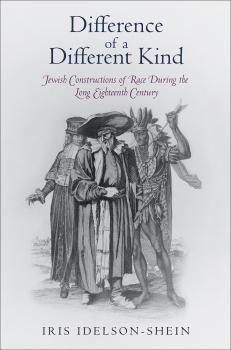ТОП просматриваемых книг сайта:
Iris Idelson-Shein
Список книг автора Iris Idelson-SheinАннотация
European Jews, argues Iris Idelson-Shein, occupied a particular place in the development of modern racial discourse during the late seventeenth and early eighteenth centuries. Simultaneously inhabitants and outsiders in Europe, considered both foreign and familiar, Jews adopted a complex perspective on otherness and race. Often themselves the objects of anthropological scrutiny, they internalized, adapted, and revised the emerging discourse of racial difference to meet their own ends. Difference of a Different Kind explores Jewish perceptions and representations of otherness during the formative period in the history of racial thought. Drawing on a wide range of sources, including philosophical and scientific works, halakhic literature, and folktales, Idelson-Shein unfolds the myriad ways in which eighteenth-century Jews imagined the «exotic Other» and how the evolving discourse of racial difference played into the construction of their own identities. Difference of a Different Kind offers an invaluable view into the ways new religious, cultural, and racial identities were imagined and formed at the outset of modernity.

